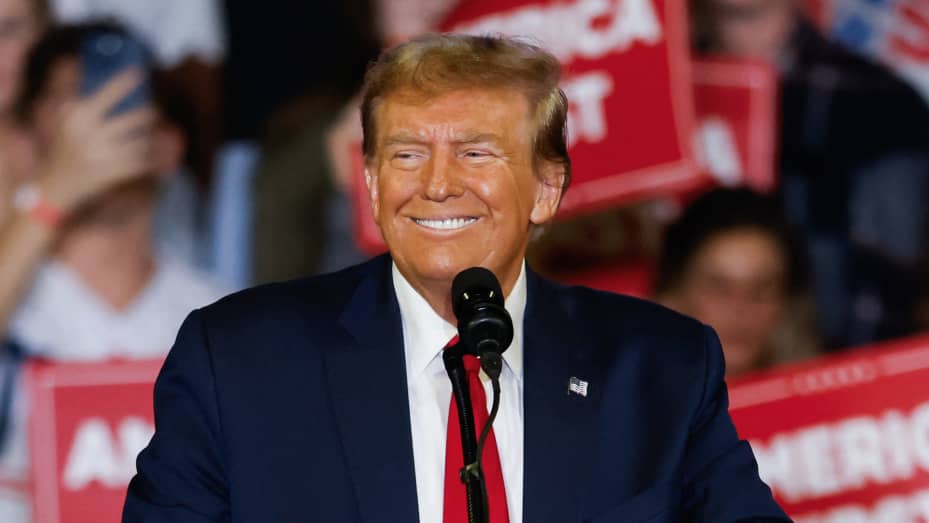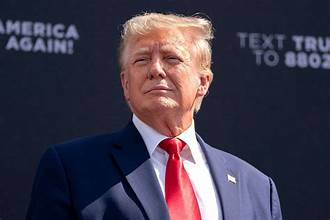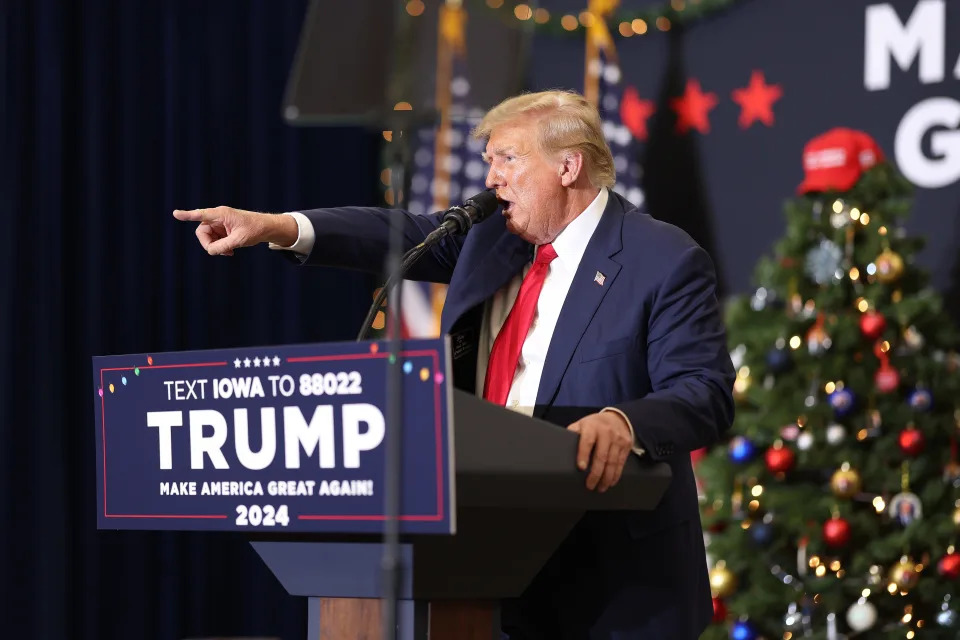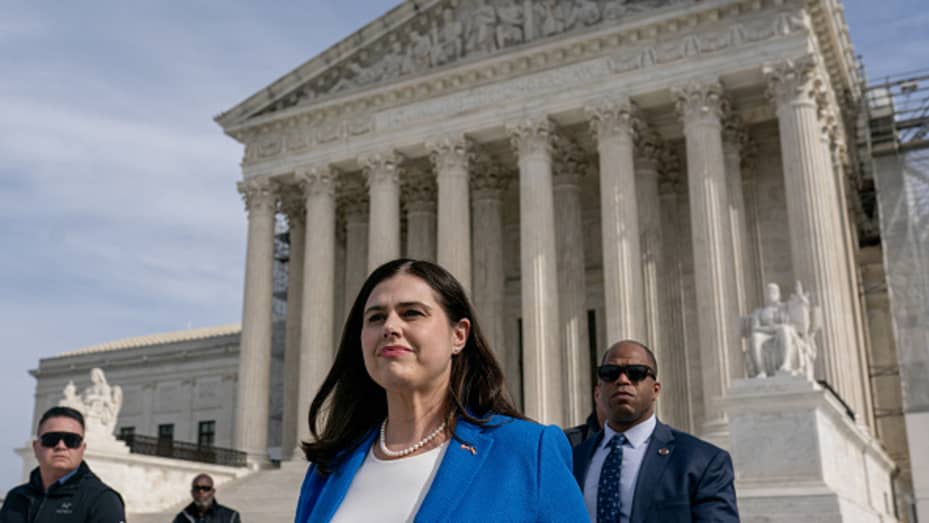- The Supreme Court on Monday tossed out a Colorado court ruling that barred Donald Trump from appearing on the state’s Republican presidential primary ballot.
- The ruling means that no other state can bar Trump, or any other candidate, from a presidential ballot by invoking the insurrection clause in the Constitution.
- Colorado was the first of three states to block Trump from a primary ballot due to his alleged incitement of the Jan. 6, 2021, riot at the U.S. Capitol, which disrupted the confirmation of the Electoral College victory of President Joe Biden.
- The U.S. Constitution says “no person” can serve as an officer of the United States who “engaged in insurrection or rebellion” against the U.S. after taking an oath of federal office.

The Supreme Court on Monday unanimously reversed the Colorado court ruling that barred former President Donald Trump from appearing on the state’s Republican presidential primary ballot because of a provision in the U.S. Constitution on insurrection.
The Supreme Court’s ruling means that no other state can bar Trump — or any other candidate from now on — from a presidential ballot or election for Congress by invoking the insurrection clause the Constitution.
“We conclude that States may disqualify persons holding or attempting to hold state office,” the Supreme Court said in its ruling Monday. “But States have no power under the Constitution to enforce Section 3 with respect to federal offices, especially the Presidency.”

“For the reasons given, responsibility for enforcing Section 3 against federal officeholders and candidates rests with Congress and not the States,” the ruling said. “The judgment of the Colorado Supreme Court therefore cannot stand.”
The decision did not conclude one way or the other if Trump had engaged in insurrection, as Colorado’s high court did.
Later, during remarks from his home in Florida, Trump said, “The voters can take someone out of the race very quickly, but a court shouldn’t be doing that and the Supreme Court said that very well.”
“It was a very important decision, very well-crafted, and I think it will go a long way toward bringing our country together, which our country needs,” he said.
Colorado Secretary of State Jena Griswold in an interview with MSNBC after the ruling said, “My larger reaction is disappointment.”
“I do believe that states should be able under our Constitution to bar oath-breaking insurrectionists,” Griswold said.
The president of non-profit advocacy group Citizens for Responsibility and Ethics in Washington, which represented the plaintiffs in the case, said the Supreme Court “failed to meet the moment” by allowing Trump back onto the ballot in Colorado even as it did not “exonerate” him for engaging in insurrection.

“But it is now clear that Trump led the January 6th insurrection, and it will be up to the American people to ensure accountability,” CREW President Noah Bookbinder said.
The decision, which means that votes Trump garners on Tuesday’s ballot in Colorado will count for the former president, was not a surprise.
During oral arguments in the case on Feb. 8, many of the court’s nine justices appeared skeptical of the Colorado Supreme Court’s rationale for and process in its December decision disqualifying Trump from the ballot.
“I think that the question that you have to confront is why a single state should decide who gets to be president of the United States,” Justice Elena Kagan, one of the court’s progressive members, said during the hearing to a lawyer for the six Colorado voters who sought Trump’s disqualification.
But in a concurring opinion Monday, Kagan and the only other liberals on the court, Justice Sonia Sotomayor and Justice Ketanji Brown Jackson, wrote that they disagreed with the finding by five conservative justices that “a disqualification for insurrection can only occur when Congress enacts a particular kind of legislation pursuant to Section 5 of the Fourteenth Amendment.”
“In doing so, the majority shuts the door on other potential means of federal enforcement,” the trio wrote. “We cannot join an opinion that decides momentous and difficult issues unnecessarily, and we therefore concur only in the judgment.”
The three justices also accused the five conservatives in their opinon of attempting “to insulate all alleged insurrectionists from future challenges to their holding federal office.”
Justice Amy Coney Barrett, a conservative, in her own concurring opinion, agreed with the three liberals that the case did not require the Supreme Court to rule that only congressional legislation could enforce the insurrection clause.
“This suit was brought by Colorado voters under state law in state court,” Barrett wrote. “It does not require us to address the complicated question whether federal legislation is the exclusive vehicle through which Section 3 can be enforced.”
But Barrett added that, “In my judgment, this is not the time to amplify disagreement with stridency.”
“The Court has settled a politically charged issue in the volatile season of a Presidential election,” she wrote. “Particularly in this circumstance, writings on the Court should turn the national temperature down, not up.”
“For present purposes, our differences are far less important than our unanimity: All nine Justices agree on the outcome of this case. That is the message Americans should take home.”

In a ruling in November, a Denver District Court judge ruled that Trump could appear on Colorado’s ballot, despite her belief that he had “engaged in insurrection” by inciting the attack on the Capitol by a mob of his supporters.
The deadly attack led members of Congress to flee the House of Representatives and the Senate, delaying by hours their certification of Biden’s election as president.
A Senate report later found that at least seven people died in connection with the attack, and more than 170 police officers were injured.
Source: CNBC.com









